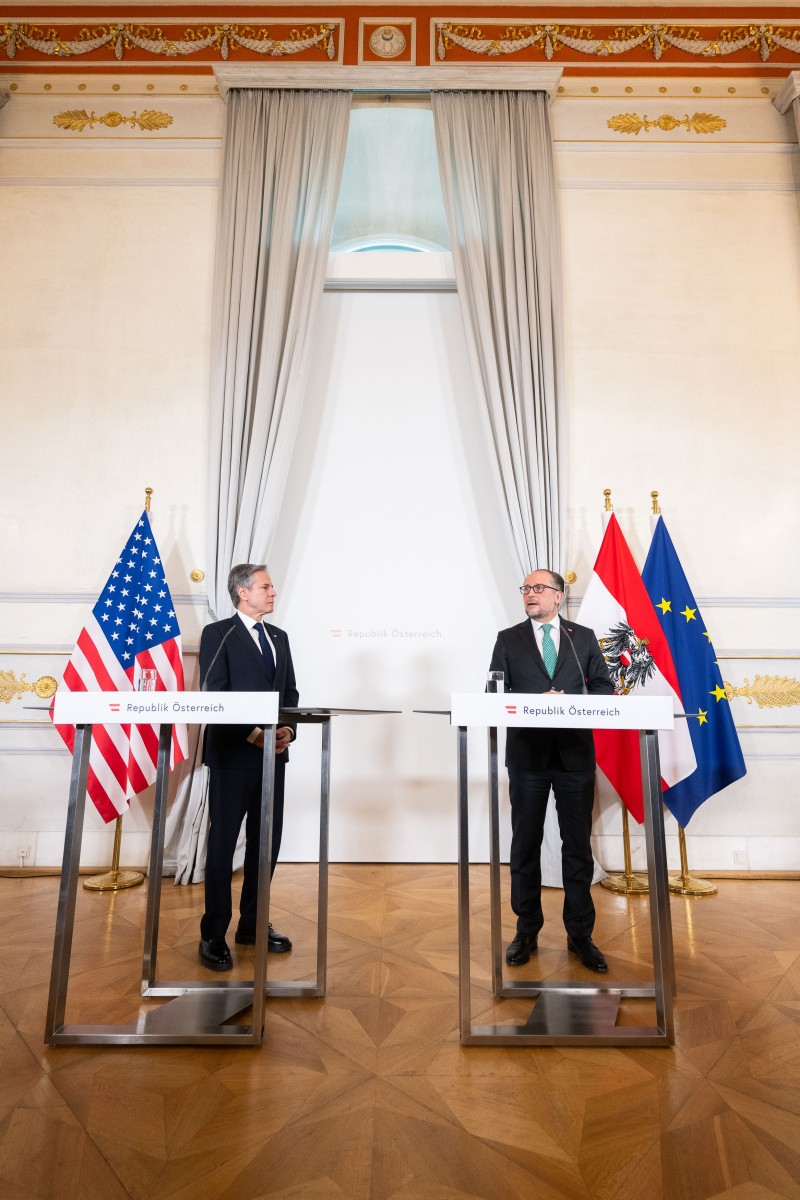Sponsored Content
U.S. Secretary of State Antony Blinken in Vienna: Commitment to Global Challenges
At a time of global uncertainty and increasing challenges, U.S. Secretary of State Antony J. Blinken's visit to Vienna sent a strong message of international cooperation and diplomatic dialog. During his stay in the Austrian capital, Blinken tackled several key issues ranging from the fight against synthetic drugs to nuclear security and continued support for Ukraine.
 Austrian Foreign Minister Alexander Schallenberg (r.) held a press conference in Vienna together with his counterpart U.S. Secretary of State Antony Blinken (l.). / Picture: © BMEIA Bundesministerium für Europa, Integration und Äußeres / Michael Gruber / Flickr Attribution 2.0 Generic (CC BY 2.0)
Austrian Foreign Minister Alexander Schallenberg (r.) held a press conference in Vienna together with his counterpart U.S. Secretary of State Antony Blinken (l.). / Picture: © BMEIA Bundesministerium für Europa, Integration und Äußeres / Michael Gruber / Flickr Attribution 2.0 Generic (CC BY 2.0)
The visit marks the first time a sitting U.S. Secretary of State has attended a meeting of the UN Commission on Narcotic Drugs, underscoring the urgent need to respond to the global drug crisis. Blinken called for international unity to step up the fight against synthetic drugs like fentanyl, which have caused an unprecedented opioid crisis worldwide. By pledging an additional $170…
or Log In
Fast News Search





